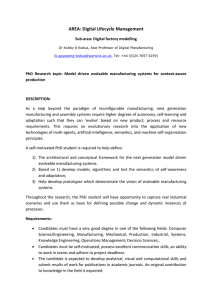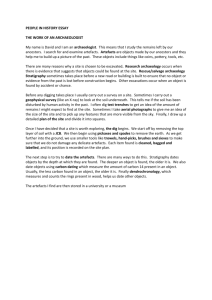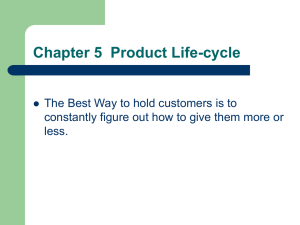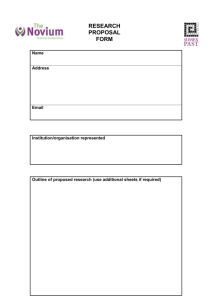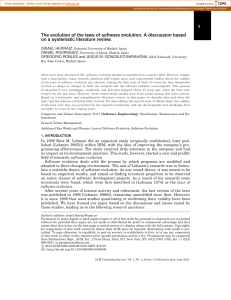ABSTRACT: Software evolution is unavoidable due ...
advertisement
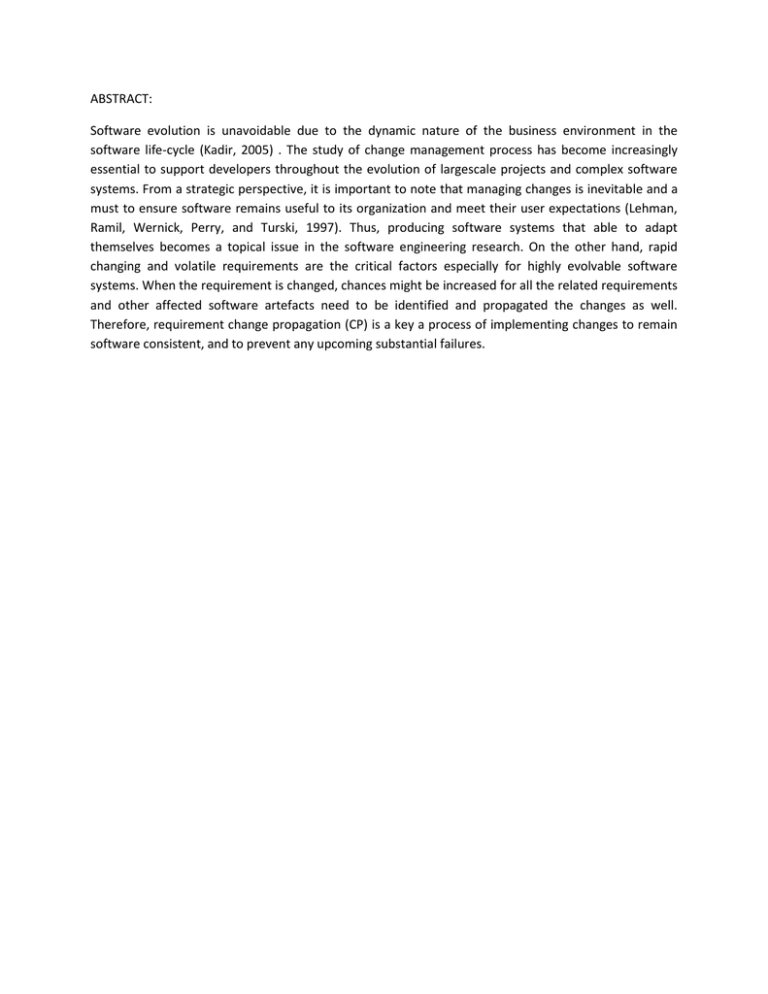
ABSTRACT: Software evolution is unavoidable due to the dynamic nature of the business environment in the software life-cycle (Kadir, 2005) . The study of change management process has become increasingly essential to support developers throughout the evolution of largescale projects and complex software systems. From a strategic perspective, it is important to note that managing changes is inevitable and a must to ensure software remains useful to its organization and meet their user expectations (Lehman, Ramil, Wernick, Perry, and Turski, 1997). Thus, producing software systems that able to adapt themselves becomes a topical issue in the software engineering research. On the other hand, rapid changing and volatile requirements are the critical factors especially for highly evolvable software systems. When the requirement is changed, chances might be increased for all the related requirements and other affected software artefacts need to be identified and propagated the changes as well. Therefore, requirement change propagation (CP) is a key a process of implementing changes to remain software consistent, and to prevent any upcoming substantial failures.

